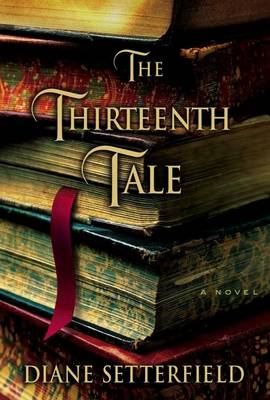
Vida Winter, a bestselling yet reclusive novelist, has created many outlandish life histories for herself, all of them invention. Now old and ailing, at last she wants to tell the truth about her extraordinary life. Her letter to biographer Margaret Lea - a woman with secrets of her own - is a summons. Vida's tale is one of gothic strangeness featuring the Angelfield family: the beautiful and wilful Isabelle and the feral twins Adeline and Emmeline. Margaret succumbs to the power of Vida's storytelling, but as a biographer she deals in fact not fiction and she doesn't trust Vida's account. As she begins her researches, two parallel stories unfold. Join Margaret as she begins her journey to the truth - hers, as well as Vida's.
Not the book I was expecting based on reviews I'd read. I was mentally prepped for a darker, somewhat more manipulative, maybe almost a templaric tale. It wasn't any of those things, but it is an excellent story.
The MC is contacted by an author who is both very reclusive and famous to an almost unholy degree, to write her biography; her true biography, not one of the dozens of made-up tales she's told over the years. She's finally ready to reveal who she is and what really happened at Angelfield Hall.
I didn't like the MC much (Margaret); her level of personal drama/victimisation irritated me to distraction. As someone who is neither a romantic nor a twin, I found the level of pain and mourning to be, if I'm being kind, too far removed from my experience to fully empathise. If I'm not being kind, I found it heavy-handed and unrealistic. Someone should have shoved both Margaret and her mother into counselling decades ago.
I liked Vida Winter though (the author whose biography she is writing). This character is where Setterfield's talent as a writer over-shined my irritation with the soppy MC. Vida Winter kept me reading, even when I'd have rather not. (There are some twisted family dynamics in this book.) Her ability to weave a tale borders on magic, and she used language to enthral, manipulate and trick her reader, and did it in a way that made me bump my rating up a 1/2 star. Her crafting of the plot was outstanding and I did not anticipate that twist; I was so busy anticipating a different twist - one that would have ruined the book in my eyes - that I was rather blindsided by this one. Well played.
My favorite quotes from the book:
"I have always been a reader; I have read at every stage of my life and there has never been a time when reading was not my greatest joy. And yet I cannot pretend that the reading I have done in my adult years matches in its impact on my soul the reading I did as a child. [...] I still forget myself when I'm in the middle of a good book. Yet it is not the same. Books are for me, it must be said, the most important thing; what I cannot forget is that there was a time when they were at once more banal and more essential than that. When I was a child, books were everything. And so there is in me, always, a nostalgic yearning for the lost pleasure of books.
and this scene (which I've edited for brevity):
"Doctor Clifton came. [...] He took a thermometer and instructed me to place it under my tongue, then rose and strode to the window. With his back to me, he asked, 'And what do you read?'
With the thermometer in my mouth I could not reply.
'Wuthering Heights - you read that?'
'Mm-hmm.'
'And Jane Eyre?'
'Mm'
'Sense and Sensibility?'
'Hm-m'
He turned and looked gravely at me. 'And I suppose you've re-read these books more than once?'
I nodded and he frowned. 'Read and re-read? Many times?'
[...]
I was baffled by his questions, but compelled by the gravity of his gaze I nodded once again.
[...]
He removed the thermometer from my mouth, folded his arms, and delivered his diagnosis. 'You are suffering from an ailment that afflicts ladies of romantic imagination. Symptoms include fainting, weariness, loss of appetite, low spirits. Whilst on one level the crisis can be ascribed to wandering about in the freezing rain without the benefit of adequate waterproofing, the deeper cause is more likely to be found in some emotional trauma. [...] You'll survive.'
[...]
'Treatment is not complicated: eat, rest, and take this ...' he made quick notes on a pad, tore out a page and placed it on my bedside table, 'and the weakness and fatigue will be gone in a few days.' [...]
From the door, he saluted me and was gone.
I reached for the prescription. In a vigorous scrawl, he had inked: Sir Arthur Conan Doyle, The Case-book of Sherlock Holmes. Take ten pages, twice a day, until end of course."
Sherlock Holmes: the cure for what ails you.
Reading updates
-
Started reading
-
Finished reading
-
31 October, 2020:
Reviewed
